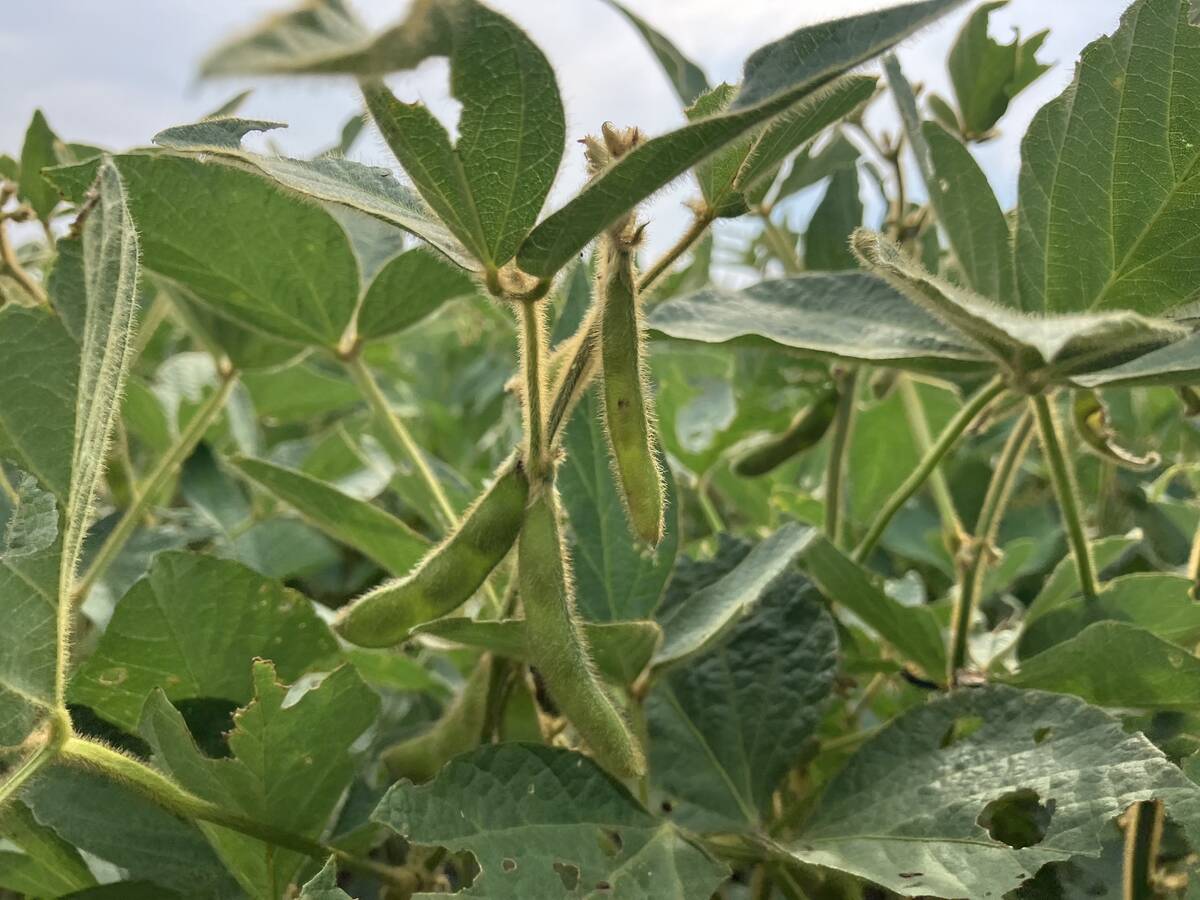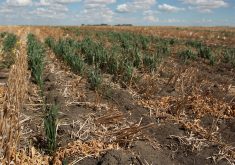As many as 20,000 new oil and gas wells could be drilled in Alberta in 2006, so a farmer’s best defence may be to join a community group to protect his rights.
More landowners are banding together to get a fair deal from oil companies entering their property, said Graham Gilchrist of the Alberta Farmer’s Advocate office.
He encourages landowners to join groups and if one does not exist, start one before a crisis appears.
“There is wealth management in sharing information and learning how to develop best practices and how the community is going to address these issues,” he said.
Read Also

U.S. loses out on sales of soybean to China
U.S. soybean exporters risk missing out on billions of dollars worth of sales to China this year as trade talks drag on and buyers in the top oilseed importer lock in cargoes from Brazil.
Groups should share information on how much they were paid for leases and other revenue when the oil company arrives. They should also share details of further agreements.
Confusion and frustration are growing among landowners dealing with company officials and complaints may never reach corporate head offices.
“From the landowners’ perspective that (communication) may not be getting down to the field level or the contractor level,” Gilchrist said.
As head of the Wheatland Surface Rights Group, Norma LaFonte of Strathmore, Alta., said people need more information to make decisions.
“Industry has the right to be there. You are the landlord and they are the tenant,” she said.
Bad deals are made because initial lease payment offers are too attractive to refuse during a time of low farm incomes. People sign and regret the decision later.
“Don’t allow the short-term need or greed to make decisions for you,” LaFonte said at the Alberta Beef Industry Council convention in Red Deer Feb. 18.
As a licenced land agent,
LaFonte works for landowners and is seeing an attitude change among some energy companies.
Landowners need to learn the rules under the provincial surface rights act, as well as for the overseeing body, the Alberta Energy and Utilities Board, or EUB.
She also suggested farmers and ranchers need to learn pipeline locations and about potential impacts. The EUB has copies of maps to show where pipelines already exist so a producer can make plans around them.
Before a company approaches a farmer, he should draw up a five, 10 or 15 year farm plan. The farmer should then mail it to himself so it is postmarked as proof of future plans.
“Get everything in writing because conversations are misconstrued,” LaFonte said.
Water wells need to be protected. Every well should be tested before oil drilling to get a baseline quality report. Do not allow drilling until the water testing is done, she advised.
Landowners also need to be aware of future liability because the banks are taking a hard line on environmental contamination from oil and gas development.
Some banks are refusing to allow land with oil and gas development to be used as collateral even though the government says the landowner is not responsible for cleanup.
Some banks want an environmental assessment that could cost as much as $2,500. LaFonte recommends asking the oil company to pay for the assessment.
Leo Touchette of the EUB agrees the lease disputes are growing tense.
“In Alberta we have never seen so much pressure on our land base, ever.”
In Alberta, the landowner owns the surface land but the mineral rights holder owns the minerals purchased in a government-run auction.
Oil companies have the right to come onto land but the law says they have an obligation to minimize the impact on the surface owner.
“You have the right to negotiate the best deal you can to minimize the impact to you and to be fairly compensated for the impact,” Touchette said.
He also advises farmers to join a surface rights group.
“We strongly encourage people to have as much knowledge as you can.”
People need to take their time in negotiating and get all agreements in writing.
“The days of doing business with a handshake are over,” he said.
Last year the EUB received 50,000 applications for wells, pipelines and other energy facilities. There were about 20 hearings to settle differences.
“In the last three years there were more wells drilled in the province of Alberta than there were in the last 50 years,” Touchette said.
“Sooner or later, somebody will be knocking on your door to talk about oil and gas development.”
The first contact a landowner usually receives is from a land agent.
Practices are changing said Allan Gagne, representing the 1,500 member Canadian Association of Petroleum Landmen.
“We are hearing loud and clear there needs to be more public involvement.”
Land agents are regulated under a 1980 licensing act that is under review. He hopes the review raises the level of professionalism among members so they are better educated to describe projects more fully to landowners.
Agents are required to provide full information on the location of a project, emergency contacts, the substance being drilled, whether sour gas is present, the schedule for work, the potential for odours and emissions, equipment on site, traffic impact, setbacks and noise levels.
The onus has fallen on the shoulders of the land agent, who may not know all the details.
“Do not accept engineering speak,” Gagne said.
A landowner may be offered two types of access agreements.
A surface lease for well sites and access roads may be presented, while a right-of-way agreement covers pipelines.
An Alberta law says landowners must be paid an entry fee of $500 per acre with a maximum of $5,000 per titled unit. The minimum is $250 if the oil company takes less than half an acre.
Lease payments are negotiated privately and if no agreement can be reached, the parties appeal to the provincial surface rights board.

















